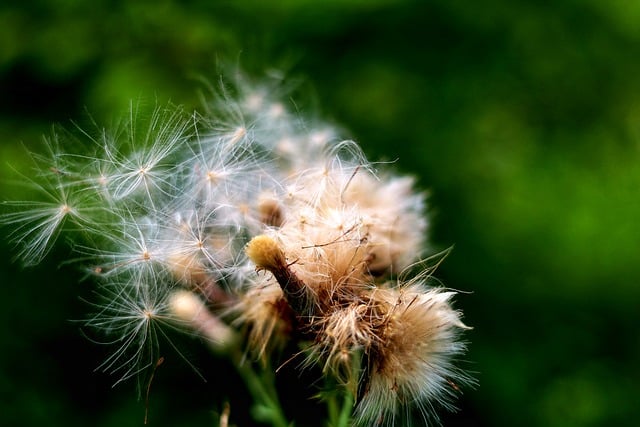THCA (Tetrahydrocannabinolic Acid), a non-psychoactive precursor to THC, has been legally distinguished in Montana due to its potential therapeutic benefits and the specific provisions of the Montana Medical Marijuana Act. Unlike other cannabis forms with psychoactive effects, THCA flower is accessible to medical patients with qualifying conditions and is also legal for adult recreational use in Montana. This state's approach to THCA has attracted national attention, offering a model for other jurisdictions considering similar legislation, with a focus on clear regulations, consumer education, and responsible production and distribution. Montana's unique stance on THCA legality is shaping future cannabis policy discussions, both locally and nationally. Additionally, users in Montana should be aware of the potential side effects of THCA, such as dry mouth and eyes, mild anxiety, elevated heart rate, drowsiness, or lethargy, especially at higher doses. It is essential for consumers to source THCA products responsibly from state-licensed retailers and adhere to Montana's hemp laws, which include compliance with the 2018 Farm Bill's guidelines on THC content and labeling requirements. Consumers must stay informed about any changes in legislation or policy that could impact the legal status of THCA products in the state.
Montana’s landscape has seen a shift towards embracing cannabis-related products, with the THCA flower gaining attention for its potential wellness benefits and nuanced legal status. As this naturally occurring form of cannabis becomes more accessible, understanding its implications, effects, and side effects is paramount for residents navigating its use within state regulations. This article delves into the legality of THCA flower in Montana, explores its diverse effects and therapeutic properties, and addresses potential side effects to ensure safe consumption practices. Join us as we unravel the intricacies surrounding THCA flower, a topic that’s becoming increasingly relevant for the health and well-being of Montanans.
- Understanding THCA Flower: Implications of Its Legal Status in Montana
- The Effects and Benefits of THCA Flower in the Context of Montana Law
- Potential Side Effects of THCA Flower Consumption for Montana Residents
- Navigating THCA Flower Use Safely Within Montana's Regulatory Framework
Understanding THCA Flower: Implications of Its Legal Status in Montana
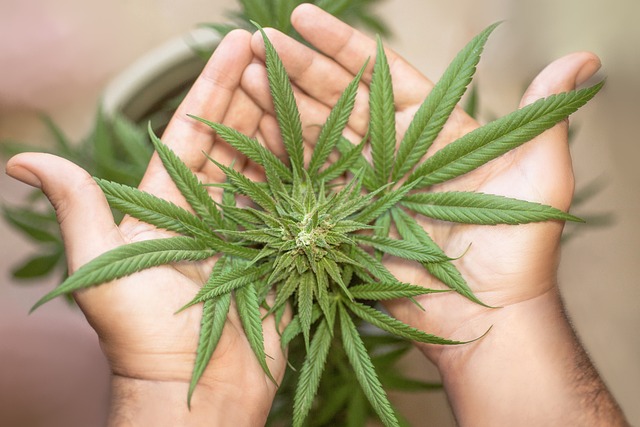
In recent years, the discussion surrounding cannabis and its derivatives has evolved significantly, particularly with the emergence of THCA (Tetrahydrocannabinolic Acid) flower. This non-psychoactive precursor to THC (Tetrahydrocannabinol) has garnered attention for its potential therapeutic benefits and different legal standing compared to its psychoactive counterpart. In Montana, the legal status of THCA flower is distinct from other cannabis forms due to a legislative nuance. The Montana Medical Marijuana Act allows for the use of marijuana for medical purposes, and within this framework, THCA flower falls under the category of usable marijuana, provided it’s obtained through a state-authorized dispensary. This legal clarity enables patients with qualifying conditions to access THCA flower, which proponents claim offers benefits such as pain relief and anti-inflammatory properties without the high associated with THC.
The implications of THCA flower’s legal status in Montana extend beyond the medical community. It has sparked a burgeoning market for recreational users interested in the potential effects of THCA, which some suggest may include anxiety and paranoia mitigation. As such, Montana’s approach to regulating THCA flower is a point of interest for policymakers in other states considering similar legislation. The state’s experience offers insights into the challenges and benefits associated with legalizing THCA, including the need for clear regulations, consumer education, and responsible production and distribution practices. This unique stance on THCA legal in Montana positions it as a pioneer in navigating the complexities of cannabis policy, with implications that could shape future cannabis legislation both within the state and across the nation.
The Effects and Benefits of THCA Flower in the Context of Montana Law
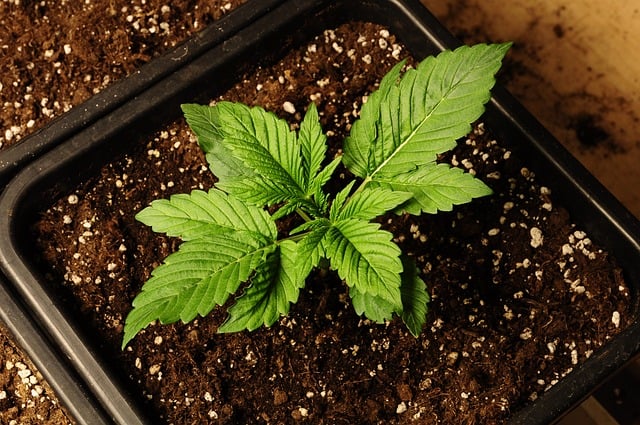
The effects and benefits of THCA flower, a non-psychoactive cannabinoid found in the Cannabis sativa plant, have garnered attention, particularly within the legal framework established by Montana law. THCA is known for its potential therapeutic properties, including anti-inflammatory and pain-relieving effects, without the psychoactive ‘high’ associated with its counterpart, THC. In Montana, the use of cannabis products, including THCA flower, has been legalized under specific conditions. The Montana Marijuana Initiative, passed by voters in 2004, allowed for the medical use of cannabis, and subsequent legislative acts have further clarified its use for both medical and adult-use recreationally.
Understanding the legal status of THCA flower in Montana is crucial for consumers and healthcare providers. According to Montana’s laws, patients with a qualifying condition can possess up to one ounce of usable marijuana and grow up to three mature plants or six seedlings if they live more than 25 miles from the nearest dispensary. For adult-use, Montana residents 21 years of age or older are permitted to possess, use, purchase, and cultivate cannabis for personal use, with limitations on quantities and home cultivation. The state’s regulations ensure that THCA flower can be legally accessed by those seeking its potential health benefits within a regulated marketplace that prioritizes safety and quality control. This legalization has opened up new avenues for research into the myriad of effects and benefits that THCA may offer, contributing to a growing body of knowledge on the therapeutic uses of cannabinoids.
Potential Side Effects of THCA Flower Consumption for Montana Residents
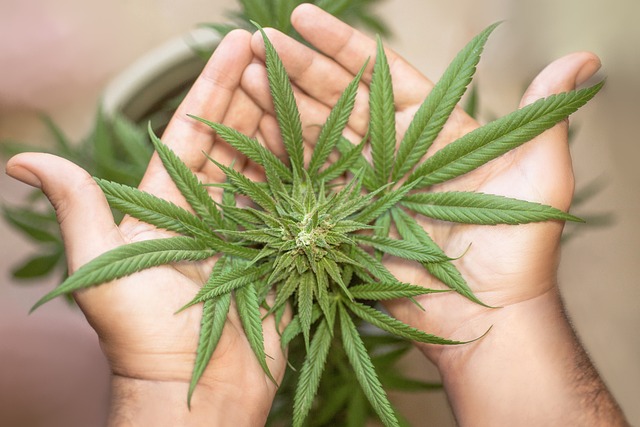
In Montana, where THCA flower has been legalized for medical use and adult-use recreationally, understanding its potential side effects is crucial for residents engaging with this cannabinoid. THCA, or tetrahydrocannabinolic acid, is the raw form of THC found in the cannabis plant before it is heated or decarboxylated to transform into THC. For those in Montana exploring THCA flower for its therapeutic benefits, it’s important to be aware that while THCA is non-psychoactive, it can still produce side effects. These may include dry mouth and eyes, mild anxiety, or increased heart rate in some individuals, particularly at higher doses. Additionally, due to its interaction with the body’s endocannabinoid system, users might experience drowsiness or lethargy, which could impact daily activities. It’s also worth noting that THCA’s effects can vary depending on factors such as individual physiology and the specific strain of cannabis used. As such, Montana residents should approach THCA flower with caution, starting with low doses to gauge personal tolerance and consulting with healthcare professionals if they have concerns or pre-existing conditions that might be affected by its consumption.
Navigating THCA Flower Use Safely Within Montana's Regulatory Framework
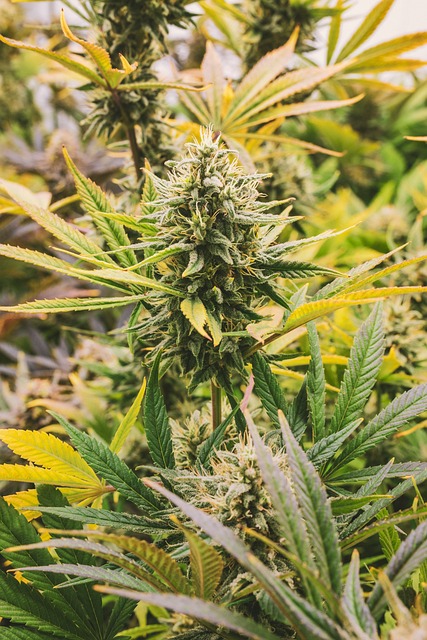
Navigating THCA flower use within Montana’s regulatory framework requires a clear understanding of the state’s laws regarding hemp and cannabinoids. As of this writing, THC-A (tetrahydrocannabinolic acid), a non-psychoactive precursor to Delta-9 THC found in hemp, is legal in Montana under the 2018 Farm Bill, provided it contains less than 0.3% Delta-9 THC on a dry weight basis. However, Montana also has its own set of regulations that govern the cultivation, possession, and use of hemp and hemp-derived products. Consumers in Montana must adhere to both federal and state guidelines, which include purchasing from licensed retailers and ensuring that the product label accurately reflects its THC content and legal compliance. It’s crucial for users to stay informed about any updates to these regulations, as the legal landscape can evolve with new legislation or policy changes. Understanding the nuances of Montana’s hemp laws is essential for consumers to safely and legally enjoy THCA flower products. They should prioritize purchasing from reputable sources that comply with state-mandated testing and labeling requirements to ensure product safety and efficacy, as well as to avoid any legal implications associated with non-compliant products.
In conclusion, the emergence of THCA flower as a subject of interest among Montanans is shaped by its evolving legal status, which continues to adapt within the state. The potential benefits of THCA flower consumption are being explored, with Montana residents examining both its effects and the associated legal framework governing its use. It is crucial for users to approach THCA flower with caution, as it can induce certain side effects that must be considered when integrating it into one’s lifestyle. Navigating its use within Montana’s regulatory environment requires careful attention to state laws regarding THCA legality. As such, individuals are encouraged to stay informed on the latest regulations and health advisories related to THCA flower to ensure a safe and compliant experience. Understanding the nuances of THCA’s legal standing in Montana is paramount for residents considering its use as part of their wellness routine.
